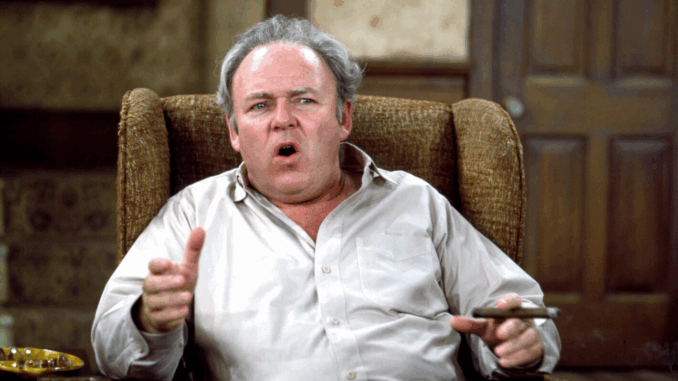
When All in the Family first aired in 1971, it didn’t just entertain—it provoked. Norman Lear’s groundbreaking sitcom pushed the boundaries of what was considered acceptable on television, using sharp humor to tackle taboo topics. But its unfiltered dialogue and unapologetically offensive lead character also ignited a nationwide debate about racism, free speech, and television censorship.
Too Real for Prime Time?
Unlike the squeaky-clean sitcoms of the 1950s and 1960s, All in the Family embraced reality. Its lead character, Archie Bunker, frequently used racial slurs, homophobic jokes, and sexist remarks—language that was shocking to hear on television. Although the show’s goal was to expose and ridicule bigotry, many Americans felt uncomfortable seeing these views depicted so openly.
Some local TV stations refused to air early episodes. Sponsors pulled advertisements. Letters poured into CBS from viewers who accused the show of spreading hate speech—even though the scripts clearly positioned Archie’s outdated beliefs as the butt of the joke.
Norman Lear Defends Creative Freedom
Creator Norman Lear became the public face of the controversy, defending the show’s intentions in interviews and public statements. He argued that silencing offensive ideas didn’t eliminate them—it just hid them. By putting bigotry on display, the show forced audiences to confront prejudice in their own lives and communities.
Lear’s stance ignited further debate about where to draw the line between satire and offense. Could a character like Archie Bunker be misunderstood and embraced by those who shared his views? Did the laughter encourage acceptance, or reflection?
Public Backlash and Political Attention
The controversy around All in the Family grew so large that even politicians took notice. Some conservative lawmakers called for tighter FCC regulations on sitcom content. Advocacy groups from both the left and right demanded changes—some accusing the show of being too permissive, others accusing it of mocking traditional values.
Yet despite the backlash, the ratings soared. Viewers couldn’t look away. Whether loved or loathed, All in the Family had become a cultural force.
Lasting Impact on TV and Society
The debates sparked by All in the Family helped redefine television’s role in American society. The show proved that comedy could be political, that sitcoms could start conversations, and that laughter could challenge the status quo.
Today, it is credited with paving the way for socially conscious shows like Maude, Roseanne, and Black-ish. Archie Bunker became a complex symbol—both a relic of the past and a mirror for the present.
Conclusion: A Controversy That Changed Television
All in the Family didn’t avoid controversy—it invited it. And in doing so, it transformed TV from passive entertainment into an active space for social reflection. Over 50 years later, its boldness continues to resonate, reminding us that sometimes, the most uncomfortable conversations are the most necessary.
